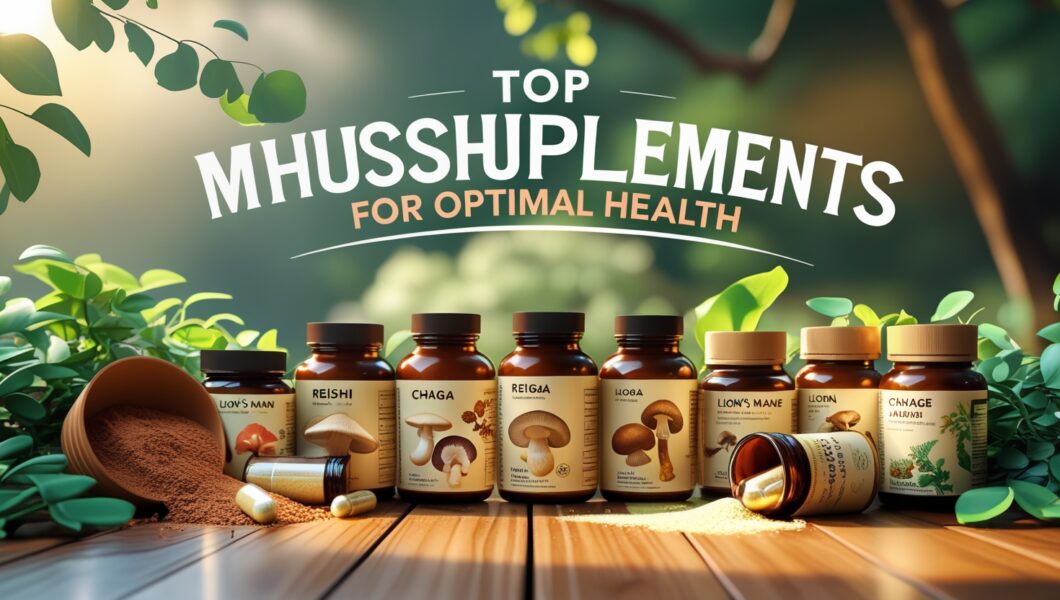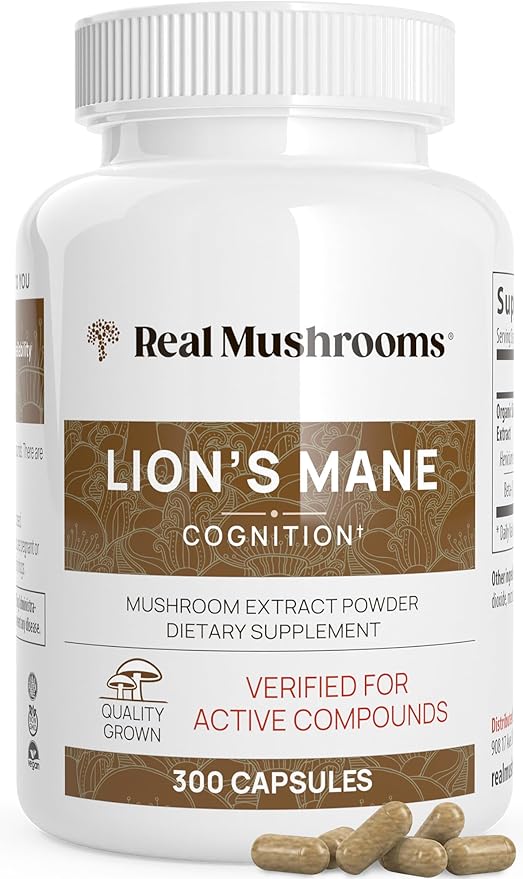Nature's pharmacy has been hiding in plain sight! Mushroom supplements are revolutionizing modern wellness, offering everything from immune system fortification to cognitive enhancement. But here's the kicker – not all fungi are created equal.
The Fungal Renaissance: Why Everyone's Going Crazy for Mushrooms
Holy moly, have you noticed the mushroom madness taking over health food stores lately? It's not just your imagination! The global mushroom supplement market is projected to reach $19.33 billion by 2030, according to Grand View Research. That's one heck of a growth spurt for these humble fungi.
But why the sudden surge? Well, turns out our ancestors weren't just throwing darts in the dark when they used mushrooms medicinally. Modern science is finally catching up, revealing what traditional cultures have known for millennia. These aren't your garden-variety button mushrooms we're talking about – we're diving deep into the world of functional fungi that pack a serious nutritional punch.
Understanding Functional Mushrooms: More Than Meets the Eye
Before we jump headfirst into our top picks, let's get our bearings straight. Functional mushrooms, also called medicinal mushrooms, are species that offer health benefits beyond basic nutrition. They're loaded with bioactive compounds like beta-glucans, triterpenes, and polysaccharides that work synergistically to support various bodily functions.
Here's where it gets interesting – these mushrooms don't just provide one-trick-pony benefits. Nope! They're adaptogenic powerhouses, meaning they help your body adapt to stress and maintain homeostasis. Think of them as your body's personal trainers, helping you perform at your peak regardless of what life throws your way.
The Heavy Hitters: Top Mushroom Supplements You Need to Know
Reishi: The “Mushroom of Immortality”
Talk about a reputation to live up to! Reishi (Ganoderma lucidum) has been dubbed the “king of herbs” in Traditional Chinese Medicine for over 2,000 years. And boy, does it deliver on its promises.
This glossy, almost otherworldly-looking mushroom is your go-to for stress management and sleep support. Research published in the Journal of Ethnopharmacology shows that reishi contains triterpenes that may help reduce anxiety and promote restful sleep. Plus, it's loaded with beta-glucans that give your immune system a serious boost. Who wouldn't want that kind of backup?
Key Benefits:
- Stress reduction and anxiety management
- Improved sleep quality
- Immune system support
- Liver detoxification
- Cardiovascular health
Lion's Mane: Your Brain's Best Friend
If reishi is the king, then Lion's Mane (Hericium erinaceus) is definitely the brainy professor of the mushroom kingdom. This shaggy, white mushroom looks like it belongs in a fairy tale, but its cognitive benefits are 100% real-world magic.
What makes Lion's Mane special? Two words: nerve growth factor (NGF). This fuzzy fungi contains compounds called hericenones and erinacines that can cross the blood-brain barrier and stimulate NGF production. Translation? Better brain function, improved memory, and potentially even protection against neurodegenerative diseases. A study in Biomedical Research found that Lion's Mane supplementation improved cognitive function in older adults with mild cognitive impairment.
Key Benefits:
- Enhanced cognitive function and memory
- Neuroprotective properties
- Mood regulation
- Digestive health support
- Potential nerve regeneration
Cordyceps: The Energy Enhancer
Ah, Cordyceps! Now here's a mushroom with a story that'll make your skin crawl – but in the best possible way. This parasitic fungus grows on insect larvae in the wild (yep, you read that right), but don't worry – commercial varieties are cultivated on grain substrates.
Cordyceps militaris and Cordyceps sinensis are the MVPs here. They're absolutely phenomenal for boosting energy levels and athletic performance. Why? They increase your body's production of ATP (adenosine triphosphate), which is basically cellular fuel. Athletes have been using cordyceps for decades to enhance endurance and reduce fatigue.
Key Benefits:
- Increased energy and stamina
- Enhanced athletic performance
- Respiratory health support
- Anti-aging properties
- Blood sugar regulation
Turkey Tail: The Immune System Superhero
Don't let the humble name fool you – Turkey Tail (Trametes versicolor) is an absolute powerhouse when it comes to immune support. This colorful, fan-shaped mushroom is packed with polysaccharide-K (PSK) and polysaccharide-peptide (PSP), compounds that have been extensively studied for their immune-modulating properties.
In fact, PSK is so effective that it's been approved as an adjuvant cancer therapy in Japan since the 1980s. While we're not claiming it's a cure-all, the research is pretty darn impressive. A study published in ISRN Oncology found that Turkey Tail extract helped improve immune function in breast cancer patients.
Key Benefits:
- Powerful immune system support
- Gut microbiome balance
- Antioxidant protection
- Potential cancer-fighting properties
- Digestive health improvement
Chaga: The Antioxidant Powerhouse
Okay, technically Chaga (Inonotus obliquus) isn't a mushroom in the traditional sense – it's a sclerotium that grows on birch trees. But who's splitting hairs when this black, crusty growth is absolutely loaded with antioxidants?
We're talking ORAC (Oxygen Radical Absorbance Capacity) values through the roof here! Chaga contains melanin, betulinic acid, and superoxide dismutase – a trifecta of antioxidant compounds that help combat oxidative stress and inflammation. Russian folk medicine has used Chaga for centuries, and modern research is validating many of these traditional uses.
Key Benefits:
- Extremely high antioxidant content
- Anti-inflammatory properties
- Immune system modulation
- Skin health support
- Blood sugar management
How to Choose Quality Mushroom Supplements: Don't Get Mushroomed!
Alright, here's where things get tricky. The supplement industry can be a bit of a Wild West, and mushroom products are no exception. So how do you separate the wheat from the chaff (or should I say, the caps from the stems)?
First things first – look for organic certification. Mushrooms are like little sponges, absorbing everything from their growing environment. You definitely don't want pesticides or heavy metals hitching a ride in your wellness routine.
What to Look For:
- Extraction method: Hot water or dual extraction (water + alcohol) is gold standard
- Beta-glucan content: Should be clearly stated on the label
- Fruiting body vs. mycelium: Fruiting bodies generally have higher concentrations of active compounds
- Third-party testing: For purity, potency, and contaminants
- Standardized extracts: Consistent potency from batch to batch
Dosage and Timing: Getting the Most Bang for Your Buck
Here's the million-dollar question: how much should you take, and when? Well, it's not exactly rocket science, but there are some guidelines worth following.
Most mushroom supplements come in capsule, powder, or liquid extract form. Dosages typically range from 500mg to 3,000mg daily, depending on the mushroom and concentration. However – and this is crucial – always start low and go slow. Your body needs time to adjust to these powerful compounds.
General Dosage Guidelines:
- Reishi: 1-3 grams daily (best taken in the evening)
- Lion's Mane: 500-1,000mg daily (can be taken anytime)
- Cordyceps: 1-3 grams daily (morning is ideal for energy boost)
- Turkey Tail: 1-3 grams daily (with meals for best absorption)
- Chaga: 1-2 grams daily (anytime)
Potential Side Effects and Precautions: Better Safe Than Sorry
Look, mushroom supplements are generally well-tolerated, but let's keep it real – everyone's different. Some folks might experience mild digestive upset, especially when starting out. That's why the “start low, go slow” approach is so important.
If you're taking medications, especially blood thinners or immunosuppressants, definitely chat with your healthcare provider first. Some mushrooms can interact with certain medications, and it's always better to err on the side of caution.
Possible Side Effects:
- Mild digestive discomfort
- Dizziness (rare)
- Skin rash (very rare)
- Blood sugar changes (monitor if diabetic)
Combining Mushrooms: The Power of Synergy
Here's where things get really exciting! Many mushroom enthusiasts swear by combining different species for enhanced benefits. It's like creating your own personalized wellness cocktail.
For instance, pairing Lion's Mane with Reishi can give you cognitive enhancement during the day and better sleep at night. Or combining Cordyceps with Turkey Tail might boost both energy and immune function. The possibilities are endless, but remember – more isn't always better. Start with one or two varieties and see how your body responds.
The Future of Functional Fungi: What's on the Horizon?
The mushroom revolution is just getting started, folks! Researchers are constantly discovering new species and applications. Some exciting developments include mushroom-based nootropic blends, targeted immune formulas, and even mushroom proteins for sustainable nutrition.
Companies are also investing heavily in cultivation technology, making these previously rare and expensive fungi more accessible to everyday consumers. We're talking about a future where mushroom supplements might be as common as vitamin C – and honestly, that day can't come soon enough!
Frequently Asked Questions
Q: Are mushroom supplements safe for everyone? A: Generally yes, but pregnant/nursing women, children, and people with autoimmune conditions should consult healthcare providers first.
Q: How long does it take to see results from mushroom supplements? A: Most people notice initial effects within 2-4 weeks, but optimal benefits may take 2-3 months of consistent use.
Q: Can I take multiple mushroom supplements together? A: Absolutely! Many people combine different mushrooms for synergistic effects. Just start with lower doses when combining.
Q: Do mushroom supplements interact with medications? A: Some can, particularly with blood thinners and immunosuppressants. Always consult your doctor if you're on medications.
Q: What's the difference between mushroom powder and extracts? A: Extracts are concentrated forms with higher potency, while powders contain the whole mushroom but may have lower bioavailability.
Final Thoughts: Embracing Nature's Pharmacy
Well, there you have it – your comprehensive guide to the top mushroom supplements for optimal health! These incredible fungi offer a natural, time-tested approach to wellness that modern science is finally beginning to understand and appreciate.
Whether you're looking to boost your immune system, enhance cognitive function, or simply optimize your overall well-being, there's likely a mushroom supplement that fits the bill. The key is choosing quality products, starting slowly, and being consistent with your routine.
Remember, supplements aren't magic bullets – they work best as part of a holistic approach to health that includes proper nutrition, regular exercise, adequate sleep, and stress management. But when used wisely, these fungal allies can be powerful tools in your wellness arsenal.
So why not give mushrooms a chance? Your body – and your future self – will thank you for it!







